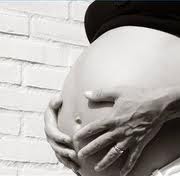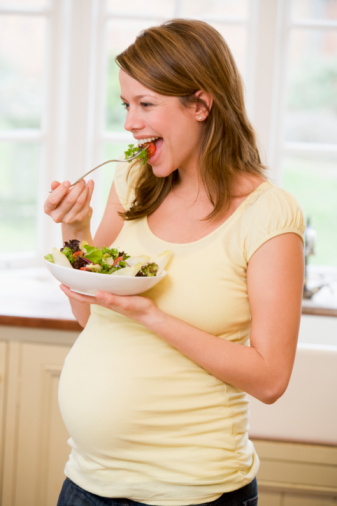
There is a positive growing trend in people researching and turning vegan, not just among celebrities and Yogi followers, and not just along the coastal regions of North America, but among those who seek improved heart, diabetes and weight health. This popular interest and curiosity toward a lifestyle involving not eating or harming any animals (including bees and their honey) is a bit controversial. In fact, it is seen by many, especially people in the Western medical culture as unhealthy and dangerous. Now take someone who is pregnant and vegan. Suddenly it is morally wrong to deny a growing baby meat protein?
❃ Will the mother and baby gain weight properly?
❃ Where will mother and baby get enough protein?
❃ Are levels of vitamin B12, D, calcium, iron, folate, DHA and Iodine sufficient?
 The very popular study conducted in Tennessee showcased results of pregnant women who dined on a strict vegan diet. Reports suggested that the women fell deficient in vitamin B12, folate, and iron.
The very popular study conducted in Tennessee showcased results of pregnant women who dined on a strict vegan diet. Reports suggested that the women fell deficient in vitamin B12, folate, and iron.
Pediatricians argue that these essential vitamins in the body could cause women to become anemic because the body wouldn't be able to make enough red blood cells without those nutrients. People who are anemic, have a harder time fighting infections and increase their risk of bleeding after giving birth.
A deficiency in vitamin B12, could cause neuropathic conditions that causes muscle weakness and nerve damage. As for folate, research shows that without proper amounts before and during pregnancy, incidences of neural tube defects may occur.
“Dairy milk is not a better source of calcium than non-animal sources like leafy greens and almonds, and people who eat a lot of animal protein are actually losing a lot of the calcium they take in. It's just not hard at all for vegans to get plenty of protein from tempeh and beans and lentils and tofu and other natural soy products.” Baby Center Member
“Protein and Omegas in your diet are important. I ate hemp waffles for breakfast every a.m. along with a fruit smoothie with protein powder, and all essential vegan prenatal vitamins are key.” Baby Center Member
It's easy to get protein and omegas through soy milk, nutritional yeast, soy yogurt, hemp and flax products.
The Vegan Society simply encourages compassion, being sweeter to the environment and better to the body. Choosing a balanced and nutritious variety of foods is the best approach to being a vegan. "A vegan is someone who tries to live without exploiting animals, for the benefit of animals, people and the planet. Vegans eat a plant-based diet, with nothing coming from animals - no meat, milk, eggs or honey, for example. A vegan lifestyle also avoids leather, wool, silk and other animal products for clothing or any other purpose," explains the Vegan Society.com.

To summarize again, this diet includes fruits, vegetables, beans, grains, seeds, and nuts. All animal sources of protein — including meat, poultry, fish, eggs, milk, cheese, and other dairy products — are excluded from the diet.
There is a lot of research pointing to the harmful effects of animal products and by products on people (both men and women, pregnant or not). If you are a practicing vegan and live the lifestyle, continuing that way of eating throughout pregnancy has proven innumerable times to be just as, if not healthier, than the traditional American diet. Keep a food and mood journal during your pregnancy and keep an eye on any possible red flags along your journey.
I suggest pregnant mamas eat plenty of beans and legumes to increase iron levels, and eat root vegetables to boost trace minerals including iodine, magnesium, and copper. Green, leafy vegetables also are great sources of calcium, vitamin K, Vitamin A and iron, (kale, collard and turnip greens, swiss chard, rhubarb, Brussels sprouts, broccoli, and turnip greens).
Eat fortified cereals that contain added vitamins and minerals including vitamins B-12 and D, both of which may be lacking in a meatless diet. Drink fortified flax, hemp, almond and non-gmo soy milk and juices without added sugars.
Take a daily dose of vegan protein powder that has all the vitamins and minerals infused in them.
Get additional protein sources from beans, lima beans (zinc), peas, and lentils (great iron source), almond and other nut butters, quinoa and brown rice.
Eat foods with Omega-3 and 6s, such as coconut oils, flaxseeds, hemp seeds, their oils, extra virgin olive oil avocados, organic tofu and organic, vegan supplements.
Iodine sources from sea vegetables, sea kelp, seaweed, nori, Chlorella and spirulina which also have great amounts of vitamin B12.
